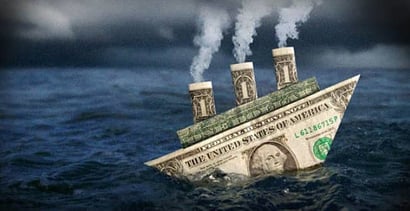

Everyone wants a good credit score. If your report shows you likely have a 700 or higher, you’ll have access to better interest rates, be approved for more loans and have higher credit limits.
Even if you aren’t concerned with these things, having a bad credit score can hurt you.
Here are seven surprising ways your negative credit score can affect your life:
1. Finding employment may be more difficult
Many human resource departments now include credit checks as a part of the application process.
This may strike you as odd, since you’re not planning on making payments to your new employer, but the credit report will indicate how responsible you are.
The theory is if you’re not responsible with your bills, you won’t be responsible with your job either. A candidate with a better score will probably get the job.
2. No place to stay
So you never took care of your credit score because you always figured you would pay in cash if you really needed something?
Well, your potential landlord doesn’t really care what your philosophy is. His philosophy is renting his unit to renters with a good credit score, and most of his peers feel the same.
However, it’s still possible to rent even if your credit score isn’t so hot.
3. Higher interest rates
It’s virtually impossible to live in America today without ever taking out a loan. When you have bad credit, you’re always going to pay a higher interest rate — you’re a “credit risk.”
This means you’ll have higher payments, essentially forcing you to pay more for the same products than those with better credit scores. However, a credit repair firm may be able to help you raise your score.
4. Home ownership becomes an unfulfilled dream
The traditional American dream of home ownership is virtually impossible for anyone with less than a 640 beacon.
You may be able to find a lender who will approve you for a mortgage if your score is lower, but you’ll need to come up with a large down payment, which may prove impossible to save up.
5. Relationship troubles
Whether you keep your bad credit score a secret or put it out in the open from day one, a bad credit score is likely to cause some problems for you.
No one wants to be surprised to find out their partner has bad credit, and many potential mates will run the other way if they’re given a heads up.
6. Car insurance is more expensive
Some insurance providers feel your credit rating is an indication of how likely you are to get into an accident.
A good credit score means you’re more careful and your rates will be lower by as much as 116 percent, according to one study. A bad credit score indicates you’re careless and your rates will be higher.
7. Expensive utility company deposits
When you sign up for utilities, like electricity or natural gas, you’re usually required to submit to a credit check.
If you’re found to be a high-risk customer, you’ll probably be required to provide a deposit. For those with bad credit, these can be as high as $1,000.
Thankfully, they’re refundable (as long as you pay your utility bills on time).
Photo source: realestateinvestingnewswatch.com.
Advertiser Disclosure
BadCredit.org is a free online resource that offers valuable content and comparison services to users. To keep this resource 100% free for users, we receive advertising compensation from the financial products listed on this page. Along with key review factors, this compensation may impact how and where products appear on the page (including, for example, the order in which they appear). BadCredit.org does not include listings for all financial products.
Our Editorial Review Policy
Our site is committed to publishing independent, accurate content guided by strict editorial guidelines. Before articles and reviews are published on our site, they undergo a thorough review process performed by a team of independent editors and subject-matter experts to ensure the content’s accuracy, timeliness, and impartiality. Our editorial team is separate and independent of our site’s advertisers, and the opinions they express on our site are their own. To read more about our team members and their editorial backgrounds, please visit our site’s About page.




